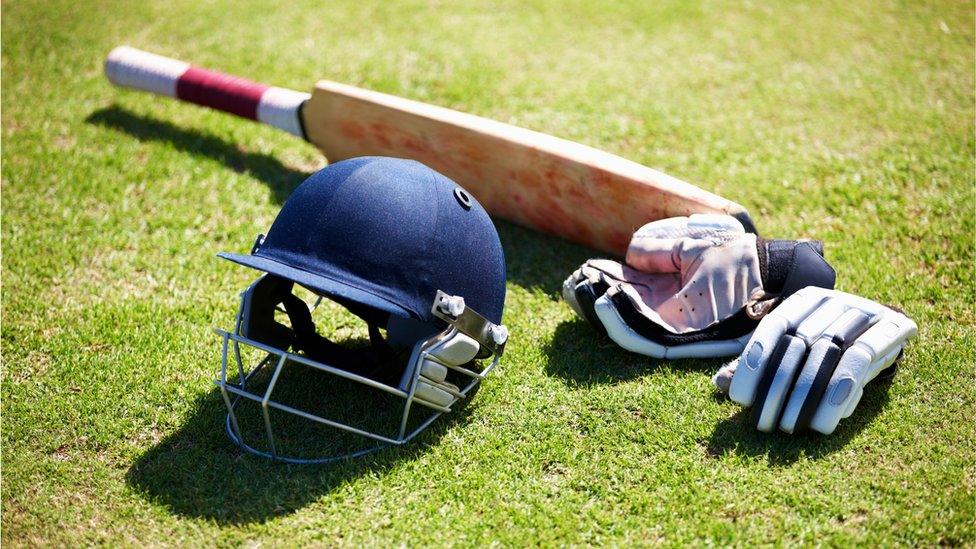Qasim Sheikh: 'Think twice' before speaking out about racism
- Published
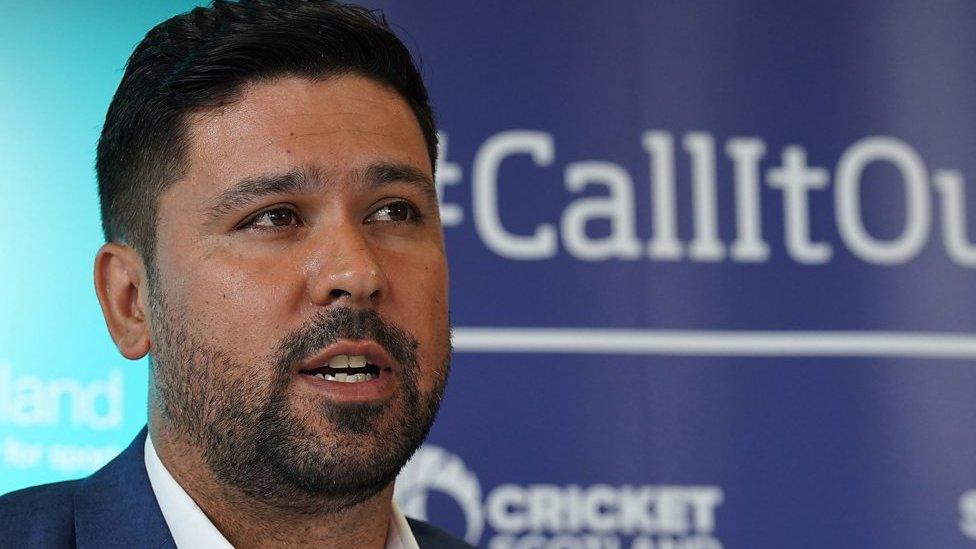
Qasim Sheikh said not enough action was being taken
Former Scotland international cricketer Qasim Sheikh says anyone facing discrimination in sport should "think twice" before speaking out.
Sheikh previously claimed he was told he should "count yourself lucky to be here" when he tried to raises concerns.
He told the BBC he had since experienced daily abuse and alerted police after his family were targeted.
Sheikh said not enough had been done since a report found Cricket Scotland to be institutionally racist.
A total of 448 examples of racism and discrimination were identified within the Scottish game by the Changing the Boundaries report, external, which was published last July.
After the report was released, Cricket Scotland announced the creation of a special advisory board and said progress was being made.
But these claims were rejected by anti-racism organisation, Running Out Racism
New interim Cricket Scotland chief executive Pete Fitzboydon admitted last week that there remained "a great deal of work to be done".
Sheikh, who previously said he was humiliated and told he was a troublemaker when he tried to raise concerns, told BBC Radio's Good Morning Scotland programme there had been a "lack of action" since a new leadership team was appointed.
He said: "It was a damning report so of course that was going to have to take some time to process but [there has been] lack of meaningful engagement from the governing body Cricket Scotland.
"There needs to be a lot more dialogue. The advisory board met once in seven months - to say that was a lot of progress felt disrespectful."
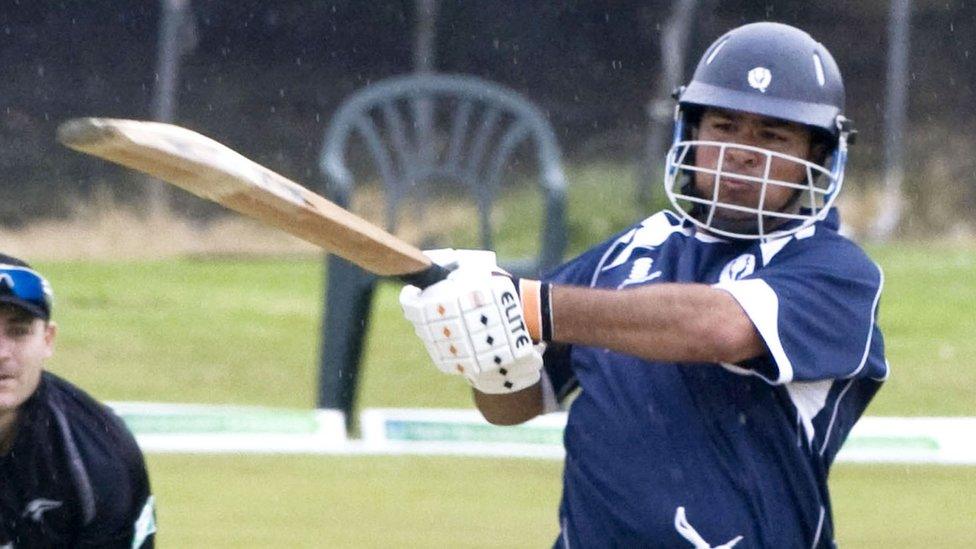
Sheikh represented Scotland between 2005 and 2010
Sheikh, who is speaking at a Race and Racism in Sport conference in Glasgow, said that following publication of the report he felt vindicated but added that he had since personally been on a "bumpy, bumpy road".
He said: "It was a chance to draw a line under it and start to move forward.
"Unfortunately I've taken daily abuse, especially on social media, and I've had my family members targeted - there's been police involvement. It's affected me personally, it's affected my family."
He added: "We talk about creating safe spaces for people to speak out - if somebody asked me should I speak out and challenge discrimination I'd probably ask them to think twice about it at the moment because of my own experience of it.
"It's all well and good asking people to speak out if they feel comfortable to do so but we need to protect those victims as well."
When asked what he would say to young people from ethnic minority backgrounds who wanted to be involved in sport in Scotland he said: "It's hard to really say with complete confidence you should go for it and you will thrive equally.
"From my experience that certainly didn't happen and I know a number of other ethnic minority cricketers and obviously a lot of other victims spoke out privately as well so there's a clear issue there."
Sheikh, who played cricket for Scotland between 2005 and 2010, said he had also played boys football up until the age of about 16 and "that wasn't the most inclusive environment either".
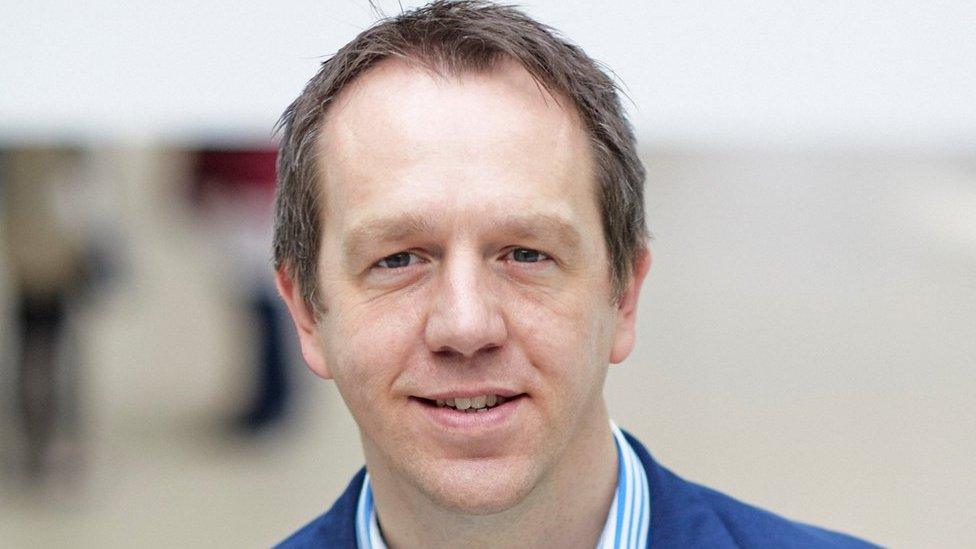
New Cricket Scotland chief executive Pete Fitzboydon admitted that there was still a great deal of work to be done
"My message to the conference will be this is not just a moment in Scottish cricket, this is a moment for all Scottish sport to reflect," he said.
"It's also an opportunity for all the Scottish sports to be communicating with each other, learning from each other and really start to drive change."
He said that although it was slow progress it was "very positive" to see Humza Yousaf appointed as first minister.
"It's one step in the right direction but there's a lot more work to be done until we get to the point that everybody - not just people of colour but people from all different backgrounds - are able to thrive equally in Scottish sport," he added.
Representatives from a number of sports, including badminton, judo and football, spoke on the first day of the two-day conference.
They all agreed that more needed to be done to tackle racism in Scottish sport.
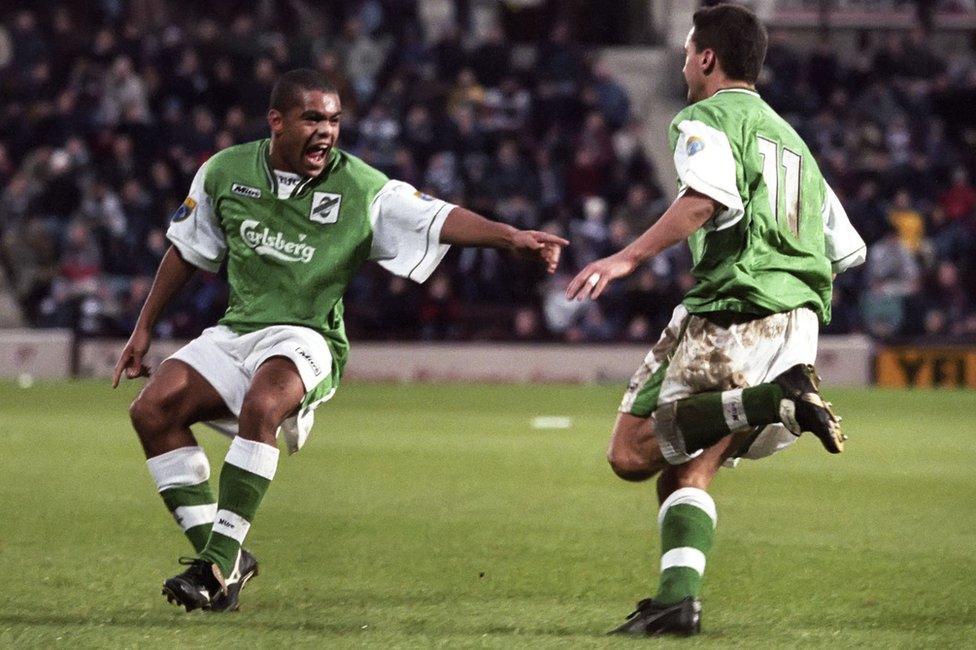
Kevin Harper said he had been hoping for change for 30 years
Former football player and coach Kevin Harper told the conference about his experiences of racial abuse.
In a BBC interview afterwards he said that as a child the abuse was "hard to take" but he brushed it off as being "just normal".
He said he did not expect it to happen when he was playing professionally.
"Football has got the biggest platform of any sport and we don't use that platform," he said. "It comes from the very top, whether that's the SFA, the PFA - they have to make it a priority to change the way Scottish football is."
He said that if he had known as a child about the abuse he would suffer he would have thought twice about becoming a footballer.
But he added that black and ethnic minority players were like a "beacon of light to black and ethnic kids" in the same way players like Mark Walters and John Barnes were to him.
- Attribution
- Published27 April 2023
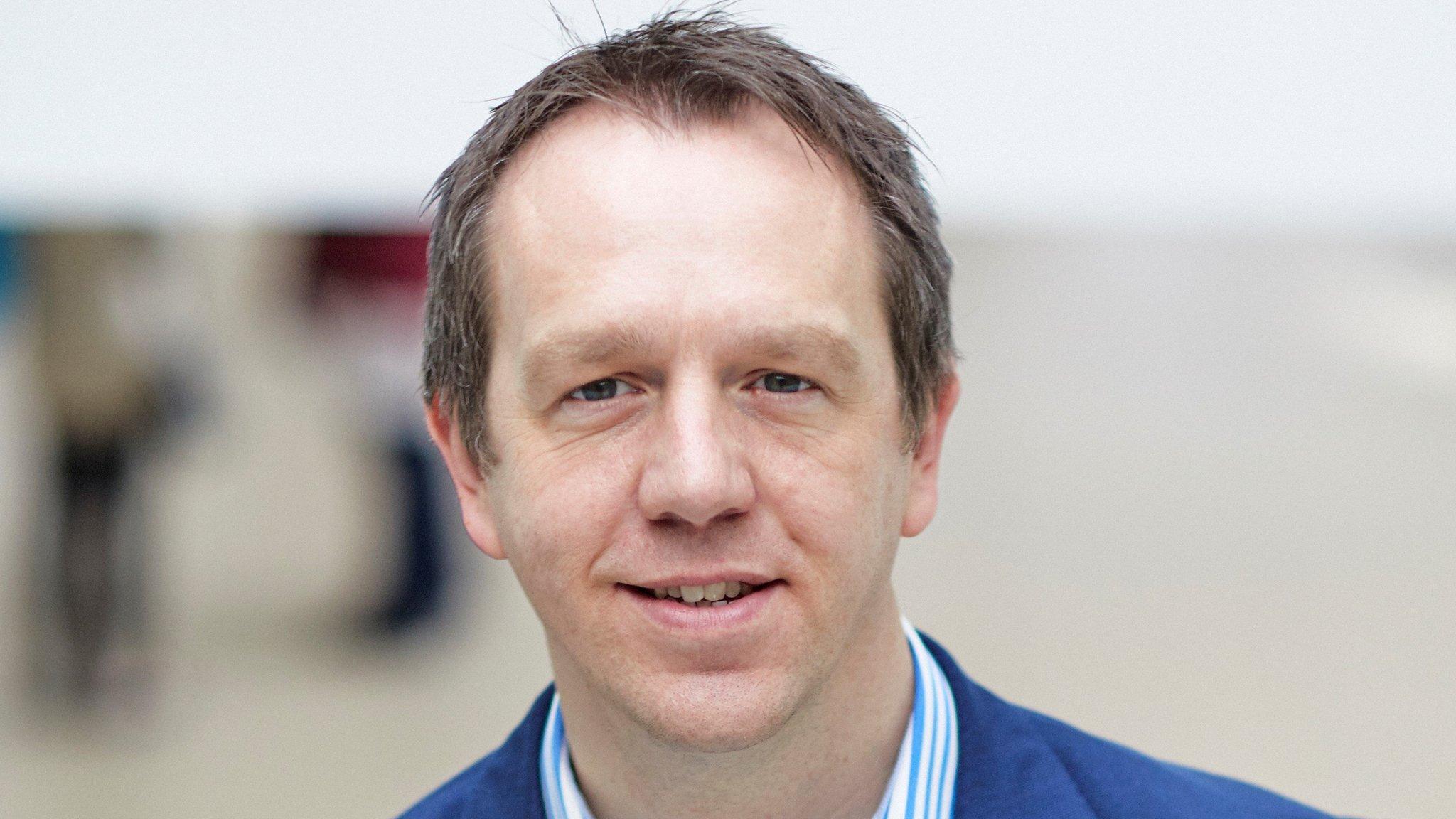
- Published21 March 2023
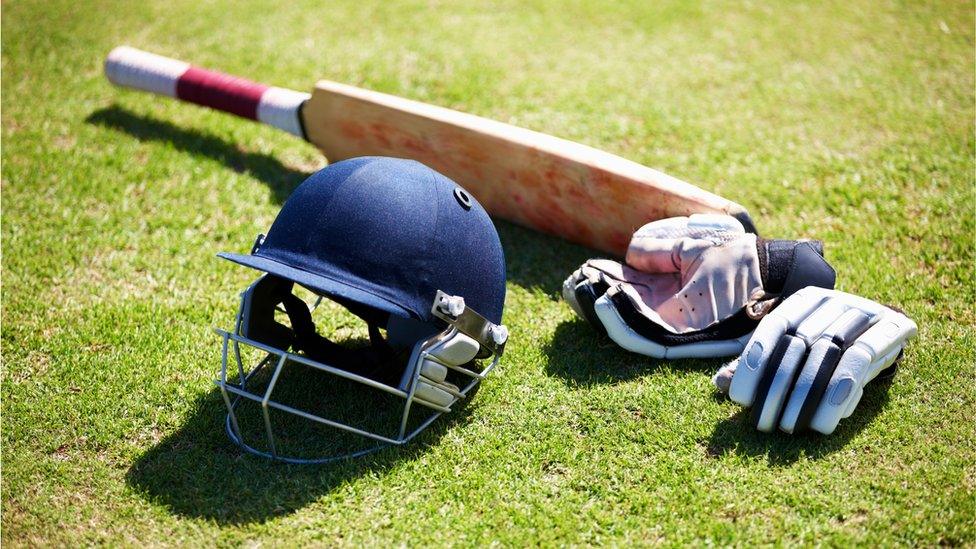
- Published31 October 2022
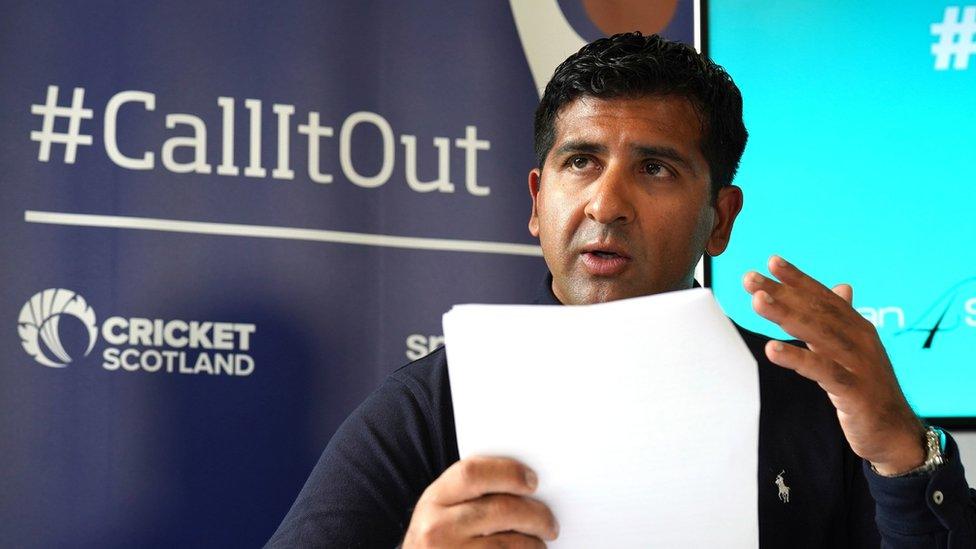
- Published25 July 2022
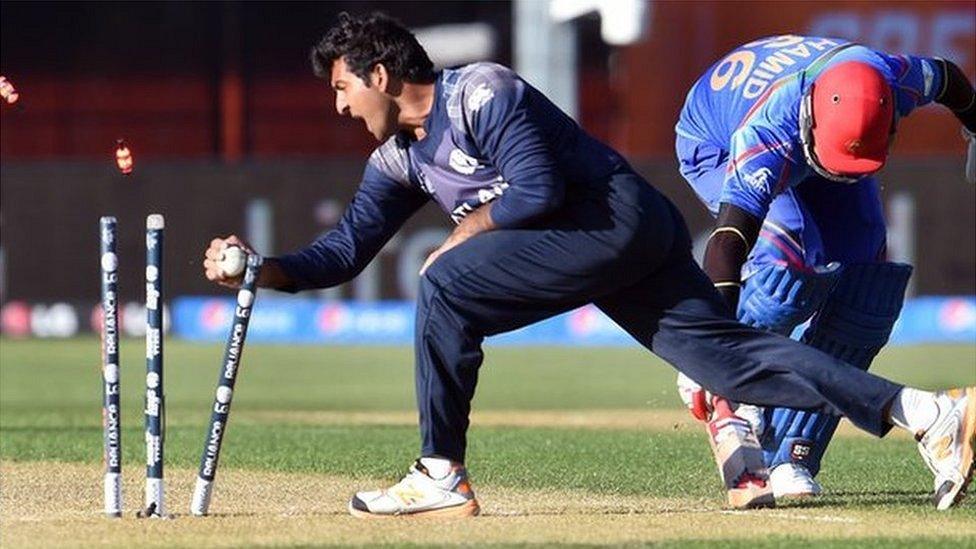
- Published25 July 2022
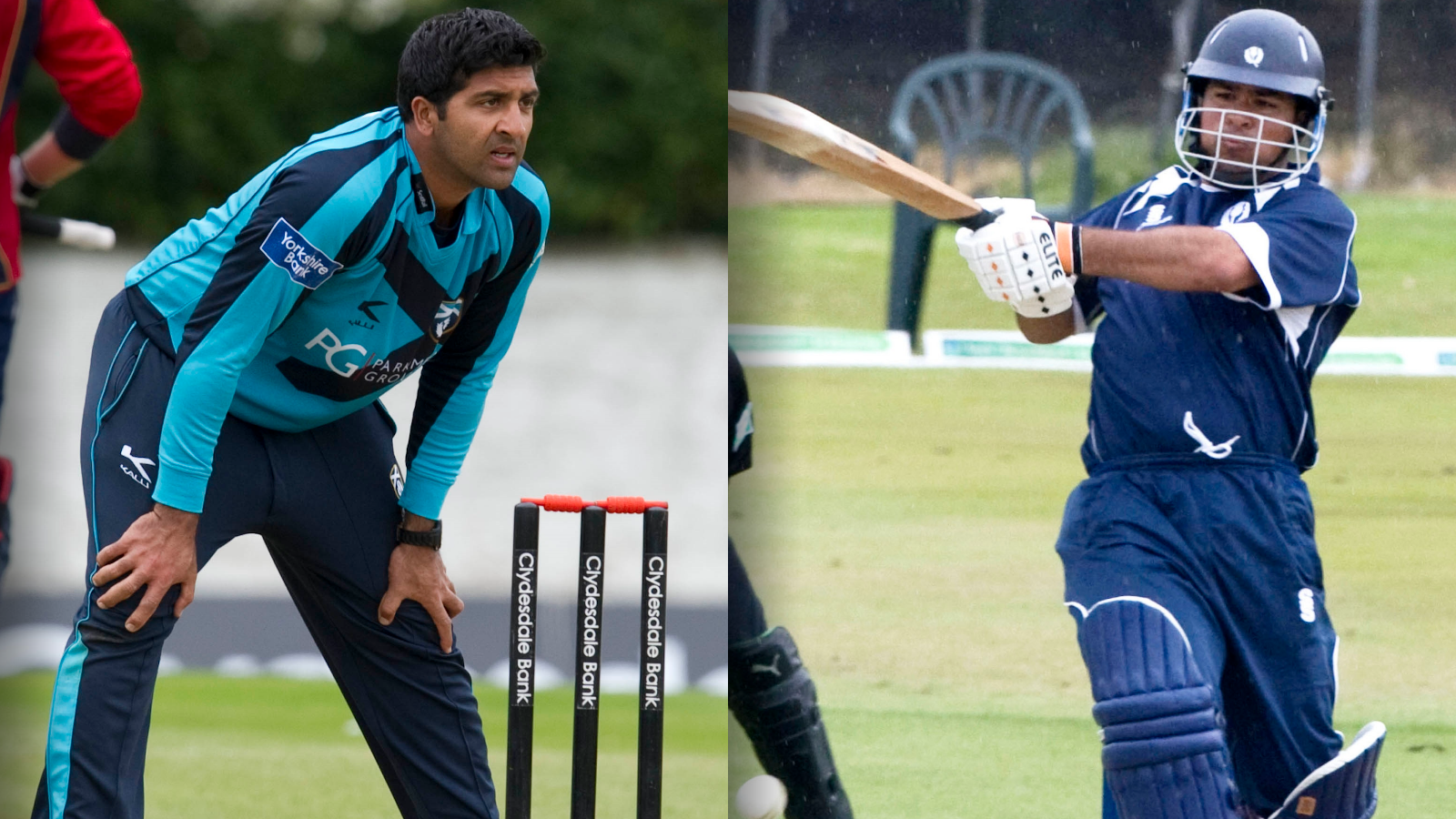
- Published23 July 2022
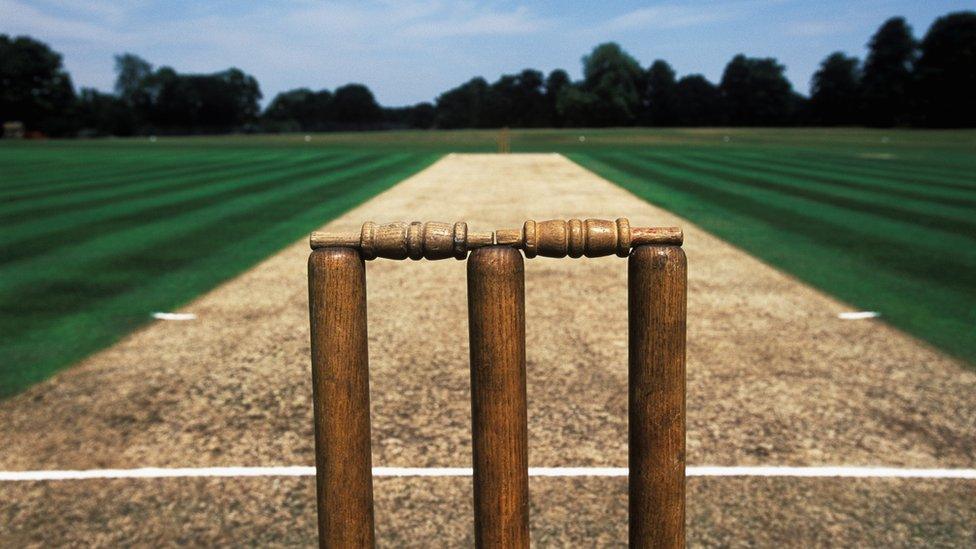
- Published24 July 2022
